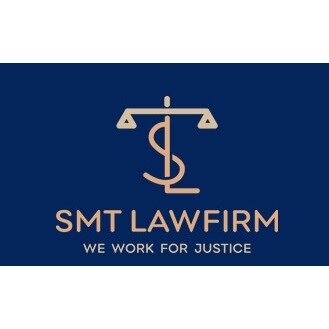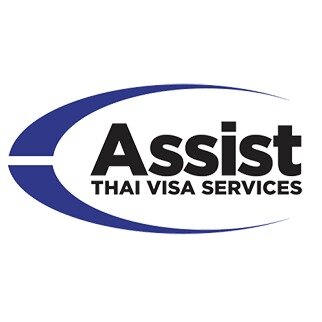About Landlord & Tenant Law in Chiang Mai, Thailand
Landlord and tenant law in Chiang Mai, Thailand, is governed by a combination of local customs, Thai civil and commercial regulations, and rental agreements. The law aims to establish a balanced relationship between landlords and tenants, ensuring fairness and protection for both parties. Because of Chiang Mai's status as a popular destination for both local residents and expatriates, understanding this legal landscape is essential. Agreements, typically detailed in written contracts, delineate the duties and rights of both landlords and tenants, including rent payment, maintenance responsibilities, and eviction procedures.
Why You May Need a Lawyer
Several scenarios can necessitate legal advice or representation in landlord and tenant matters in Chiang Mai. Common issues include disputes over deposit refunds, unauthorized eviction practices, disagreements over property maintenance, and breaches of contract terms. Understanding local regulations and ensuring compliance can be complex, especially for those unfamiliar with Thai law. Legal professionals can assist in negotiating lease terms, resolving disputes, and guiding parties through court proceedings if necessary.
Local Laws Overview
The key legal framework for landlord and tenant relationships in Chiang Mai stems from the Thai Civil and Commercial Code. Some key aspects include:
- Lease Agreements: Leases are typically required to be written and should explicitly outline all terms, including rent amount, payment terms, and duration.
- Deposit and Rent Payment: Landlords often require a deposit, which by law, must be managed fairly. Rent should be paid as per the agreement's terms, typically monthly.
- Maintenance and Repairs: Usually, landlords are responsible for structural repairs, while tenants handle minor maintenance, but agreements can vary.
- Eviction Procedures: Legitimate grounds and proper notice are required for evictions, and illegal evictions can lead to penalties.
- Termination of Lease: Either party may terminate the lease under specific conditions, often requiring a notice period in accordance with the lease terms.
Frequently Asked Questions
What should be included in a rental agreement?
A rental agreement should detail the rent, payment schedule, lease term, responsibilities for maintenance, and procedures for termination and eviction.
Can a landlord increase rent during a contract period?
Typically, rent cannot be increased during the contract period unless it is explicitly stated in the lease agreement.
Is renter's insurance required in Chiang Mai?
Renter's insurance is not mandatory but is recommended to protect personal belongings against damage or theft.
What are my rights concerning privacy as a tenant?
Tenants have the right to privacy, and landlords must provide notice and obtain consent before entering the premises, except in emergencies.
How much notice is required to terminate a lease?
The notice period for termination should be specified in the lease agreement, commonly ranging from 30 to 60 days.
What can I do if my landlord withholds my deposit?
Discuss the issue with your landlord first. If no resolution is reached, legal assistance may be necessary to recover your deposit.
Is sub-letting legal in Chiang Mai?
Sub-letting is typically permissible only if the original lease agreement allows for it or if the landlord provides explicit consent.
What happens if a property becomes uninhabitable?
If the property becomes uninhabitable due to circumstances not caused by the tenant, the tenant may be entitled to a rent reduction or lease termination.
Can a landlord refuse to return my deposit for normal wear and tear?
A landlord cannot legally withhold a deposit for normal wear and tear. Deductions should only cover damages beyond normal usage.
Can I be evicted without notice?
No, legal evictions require proper cause and due notice as stipulated in the lease agreement and by Thai law.
Additional Resources
For further assistance, consider reaching out to the following resources:
- Chiang Mai Lawyers Association: Provides assistance and guidance for legal matters, including landlord-tenant issues.
- Department of Land, Ministry of Interior: Official body for property and land issues in Thailand.
- Consumer Protection Office: Can offer advice on disputes and rights related to rental agreements.
- Expat Community Forums and Groups: Online communities can provide peer support and recommendations for legal professionals.
Next Steps
If you require legal assistance with a landlord or tenant issue in Chiang Mai, consider the following steps:
- Gather Information: Compile all relevant documents, such as lease agreements, correspondence, and payment records.
- Consult a Lawyer: Seek advice from a legal professional experienced in Thai landlord and tenant law to discuss your situation and options.
- Attempt Conflict Resolution: Engage in dialogue with the other party to negotiate a solution, if possible.
- Consider Mediation or Legal Proceedings: If informal resolution isn't feasible, your lawyer may recommend mediation or initiating formal legal action as appropriate.
Lawzana helps you find the best lawyers and law firms in Chiang Mai through a curated and pre-screened list of qualified legal professionals. Our platform offers rankings and detailed profiles of attorneys and law firms, allowing you to compare based on practice areas, including Landlord & Tenant, experience, and client feedback.
Each profile includes a description of the firm's areas of practice, client reviews, team members and partners, year of establishment, spoken languages, office locations, contact information, social media presence, and any published articles or resources. Most firms on our platform speak English and are experienced in both local and international legal matters.
Get a quote from top-rated law firms in Chiang Mai, Thailand — quickly, securely, and without unnecessary hassle.
Disclaimer:
The information provided on this page is for general informational purposes only and does not constitute legal advice. While we strive to ensure the accuracy and relevance of the content, legal information may change over time, and interpretations of the law can vary. You should always consult with a qualified legal professional for advice specific to your situation.
We disclaim all liability for actions taken or not taken based on the content of this page. If you believe any information is incorrect or outdated, please contact us, and we will review and update it where appropriate.





![Legal & Business Consultancy in Chiang Mai [LBC CHIANGMAI]](https://lawzana.com/storage/firms/2674/16209701614886.jpg)










